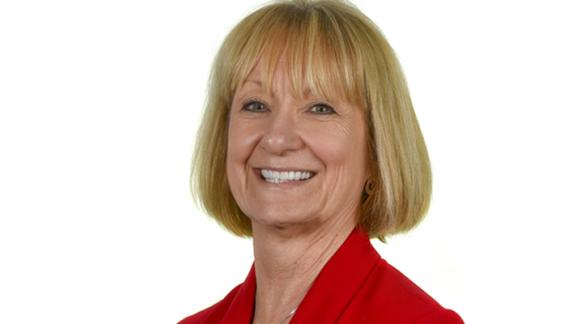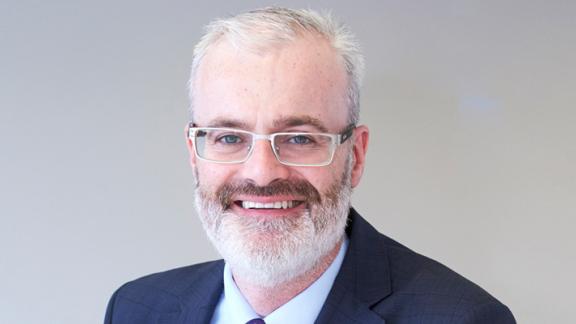NHS Reset: Co-creating the new norm through co-production and co-operation

NHS Reset is an NHS Confederation campaign to help shape what the health and care system should look like in the aftermath of the pandemic.
In this blog, Sue Stevenson highlights the value of public engagement in reforming the healthcare system and imagines a ‘letter from the future’ describing the service after NHS reset.
The COVID-19 pandemic has created seismic change in our lives and in our society. It has created a complex mix of responses: some emotional, some practical. The commonplace ‑ shopping, exercising, accessing GP appointments – has transformed.
As we look ahead, as restrictions ease and we take small steps towards something closer to ‘normal’, the winds of change stir again and invite us to ask: ‘How will we learn from this experience? How will our health and care services respond to the challenge of change?’
We believe that the answer to these questions lies in the methods of co-production, an ethos that is at the heart of what we do at Healthwatch Cumbria.
The survey: How are you coping with the coronavirus pandemic?
Informed by this principle, in the first weeks of lockdown we worked with our Healthwatch Together (Healthwatch Cumbria, Blackburn with Darwen, Blackpool and Lancashire) colleagues to co-produce and launch a COVID-19 experience survey. Over the past 16 weeks the survey has been completed over 1,200 times by people across Cumbria and Lancashire, detailing a real depth of information from which we have built a powerful picture of their experiences, challenges, priorities and concerns.
Honest and detailed, the responses have identified key themes and challenges. We heard how access to mental health services has become difficult and more needed. We heard that caring responsibilities have become harder to manage and that some people don’t know where to go for help. We heard from those experiencing financial challenge and more recently about concerns around a second spike are impacting day-to-day decisions.
But we also heard positive themes too. Eighty-two per cent of people who have had a phone or video consultation found it a positive experience. They liked the convenience of them and that they happened on time. There is also a renewed community spirit; people are being kinder and more friendly.
By acknowledging these responses and considering the data, we have developed an informed, co-produced understanding of public experience; a starting point from which we believe the public, and health and care leaders, can embark on an inclusive journey of NHS reset.
From a co-produced survey to a co-produced future
Public engagement, like the results of our survey, represents an opportunity to work together - the public, and health and care leaders - to co-create the health and care services of the future.
How might that look? We fired up our creativity and produced a ‘letter from the future’ imagining the benefits of a co-produced reset.
Dear 2020
You have no idea how much better our new primary care services are after the NHS reset. We have a new surgery and a wide range of services that we can access, not just at the surgery itself but at home, the primary school, the pharmacy, the library and even the coffee shop, right in town. New technology and lots of local involvement has really changed things.
Healthwatch has been very helpful bringing everyone together. They created a number of opportunities for everyone to talk and share ideas. They knew who to involve and how to get started. They called it co-production but actually it was just a great big conversation which grew and grew. Everyone felt involved and listened to. And I mean all of us, local people and the leaders of all the services.
I was asked to chat to everyone in our street and build up a picture of what they were struggling with and what might make it better. It was so much easier than having to read complicated documents. Now, because we have all been involved from the start, there were no surprises about what was planned and some of the simplest things have made the biggest difference.
The doctors loved the idea of a volunteer driving scheme so that when people really need a face-to-face appointment that can happen even though we have no buses and lots of people don’t drive! Mrs Smith is in her element organising this and Mr Brown, who used to spend all day alone at home, is now out and about in his car feeling that he is needed. It has really brought the community together.
I was chatting to Sue, the practice manager, the other day, she said she had always been a bit wary about talking to local people about how the surgery should be run. She worried that they wouldn’t really understand how complex things were and they might come up with unrealistic solutions. She was laughing and said that now things were so much easier. The phone wasn’t ringing constantly, the doctors had time to think and really spend time with those who needed it most and they were even reintroducing home visits.
It’s great, everyone is chatting to each other more and we know so many more folk. We know who needs a bit of a hand and we can sort things out quickly without having to make endless phone calls to try to find the right service. I feel so much better and from what I am hearing so does everyone else. It’s a win-win situation.
So, if we are to achieve our imagined future, now is the time to take real steps to get there. Let’s celebrate and welcome the involvement of people, find new ways of listening, valuing and addressing their experiences and reset the NHS together. One that can promote inclusion, wellbeing and also provide the very best healthcare that we have come to expect.
Sue Stevenson is chief operations officer at Healthwatch Cumbria. Follow them on Twitter @Healthwatchcumb


